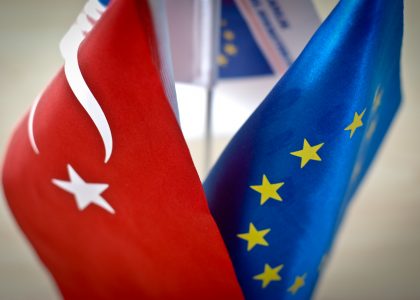By Vittoria Webb, UEA 2nd Year visiting student
Following threats to reduce Erasmus+ funding, the European Parliament succeeded in preserving it. However, considering the importance of the programme and its current issues, there is in fact an urgent need to increase the budget.
Erasmus+ is an EU funded mobility programme that enables students to study or do an internship in other countries. In order to cover the cost of the mobility, Erasmus+ offers students a grant. The main objective of the programme is to support professional and personal development in the field of education, and to do so in an equal and inclusive way. It also aims to strengthen European identity and citizenship.
In the budget draft of the Council of the EU, member states proposed a €295 million reduction to the Erasmus+ programme. In early October the European Parliament opposed this proposal. On November 16 the European Parliament reached an agreement with member states, and managed to secure €4.39 billion for the project, which is the same amount that was assigned to the programme in 2024.
In addition to the opposition of Members of the European Paliament (MEPs), the proposed budget cut to Erasmus+ prompted a call by the Erasmus Student Network (ESN) to maintain, and possibly expand, the funding. The association argued that the consequences of downgrading the programme would disproportionately affect students from disadvantaged backgrounds, and would pose a threat to the democratic vision of the EU. Although the funding was restored, this is still not enough to address the weaknesses of the programme. Considering its growing importance for reaching EU objectives and the need to tackle issues such as Euroscepticism and the cost of living crisis, this is not sufficient. As suggested by a variety of actors, there is an urgent need to increase the funding in order to maintain and strengthen the programme.
The benefits of Erasmus+
Erasmus+ offers higher education students the possibility to study or do an internship in another country for up to 12 months per study cycle. It involves the EU member states and 6 associated countries. The programme aims to promote transnational learning mobility for a wide range of individuals, and in recent years it has given more importance to improving digital skills and environmental sustainability. Its broader objectives are to increase participation in democratic life and to create a European identity. This objective is particularly important, considering the growing support to Eurosceptic parties.
A benefit of Erasmus+ is that it offers a grant to cover the costs of studying abroad. The programme also exempts students from paying university fees in their destination university, which may give them access to an institution they could not otherwise afford.Another positive aspect of the programme is that it gives students the chance to learn another language, with a specific platform to assist them.
This exchange programme has been very successful, involving more than a million students every year. In addition, the Erasmus+ annual reports have shown positive results regarding the programme’s goals. After completing the programme many students report higher interest in European topics and values, and an increased understanding of inclusion and diversity.
Erasmus+ is also considered fundamental for meeting the objectives of the European Education Area, which was launched in 2010 with the goal to increase social inclusion and non-discrimination in higher education. According to an Erasmus+ impact study, this has been one of the results of the programme. The mobility initiative also implements the 2019-2027 EU Youth Strategy, which encourages young people’s participation in democratic life and supports civic engagement. This is particularly important, considering their low turnout in European and national elections in recent years.
Challenges ahead
Despite the positive impact of the project, the proposed funding cuts and the lack of extra funding for 2025 can be attributed to the Council’s decision to prioritise giving aid to Ukraine and reimbursing the NextGenerationEU recovery fund. It is also worth noting that in recent years European governments led by Eurosceptic parties have created alternatives to the project that do not reflect the international exchange aspect of Erasmus+: the UK’s Turing scheme only organises outbound mobility, while some countries, for example Italy, only focus on mobility within the country.
Even before the proposal to cut the budget, there had been complaints about the funding not being sufficient. The main issue is that the grant offered to students does not cover the cost of living during the exchange period: this could limit the participation of students from a low-income background, especially during the current cost of living crisis. Another problem that has been highlighted is that the demand from students in some cases exceeds the funding that has been allocated to their home country. This has been the case for Ireland. Other topics raised concern more technical aspects, for example the complicated application process.
The case for increasing funding and extending the programme
A number of solutions have been proposed. The ESN proposes an increase in the budget and an increase in the grants in order to make the programme fairer. Similar suggestions were made by the European Parliament in a resolution adopted in January 2024, and in May 2024 the Council adopted a recommendation with the aim of extending learning mobility to a wider section of the population and increasing awareness of the opportunity. Finally, according to the recent Draghi report, “to reach every young person in the EU, the funding of the programme would need to increase five-fold for the 2028-2034 programming period”. These solutions highlight the need to increase the funding for the programme.
Erasmus+ is one of the most popular EU projects in the field of education. It is also important for reaching the goals of EU initiatives, such as making mobility opportunities more accessible and promoting democratic values. In order to reach these objectives, it is important to consider a number of proposals to strengthen the programme. In particular, increasing the funding and the student grants is fundamental to address inequalities. Another useful suggestion comes from the Council recommendation, which underscores the importance of awareness building to ensure the project reaches people who typically have fewer opportunities in the field of education. Although at present the EU may be prioritising other issues, such as aid to Ukraine, it should detract it from building on its successes – Erasmus+ is one of them.
Vittoria Webb is a student of Political, Social and International Sciences at the University of Bologna. She studied at UEA through the Erasmus+ programme.
Image: Staff in Student Information Zone © UEA





